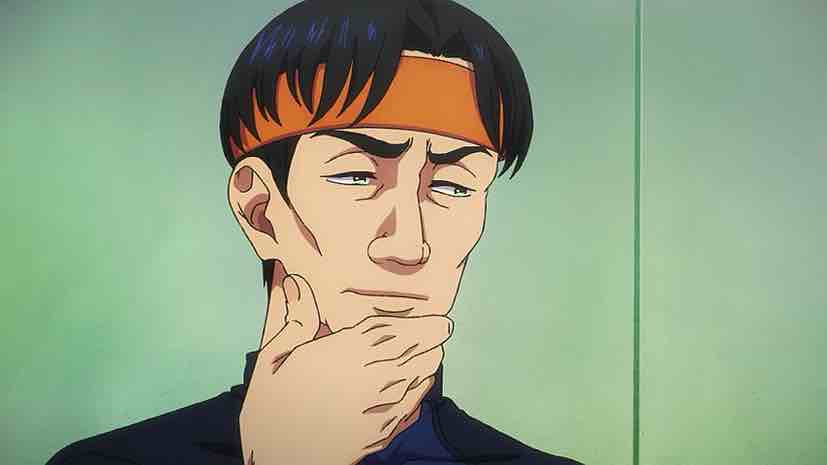 There are seemingly limitless measures one could use to judge anime. It’s somewhat arbitrary too, based on personal perspective and mood. But one that clicks for me is this: if a show can fascinate me and make me care deeply about a subject which I have zero real-world interest in, it has to be pretty great. Sometimes they can even kindle a long-term interest in the subject which outlasts the series, but that’s by no means a prerequisite. I frankly don’t think I’ll wind up a ballet fan because of watching Dance Dance Danseur, but while it lasts I’ll be captivated.
There are seemingly limitless measures one could use to judge anime. It’s somewhat arbitrary too, based on personal perspective and mood. But one that clicks for me is this: if a show can fascinate me and make me care deeply about a subject which I have zero real-world interest in, it has to be pretty great. Sometimes they can even kindle a long-term interest in the subject which outlasts the series, but that’s by no means a prerequisite. I frankly don’t think I’ll wind up a ballet fan because of watching Dance Dance Danseur, but while it lasts I’ll be captivated.
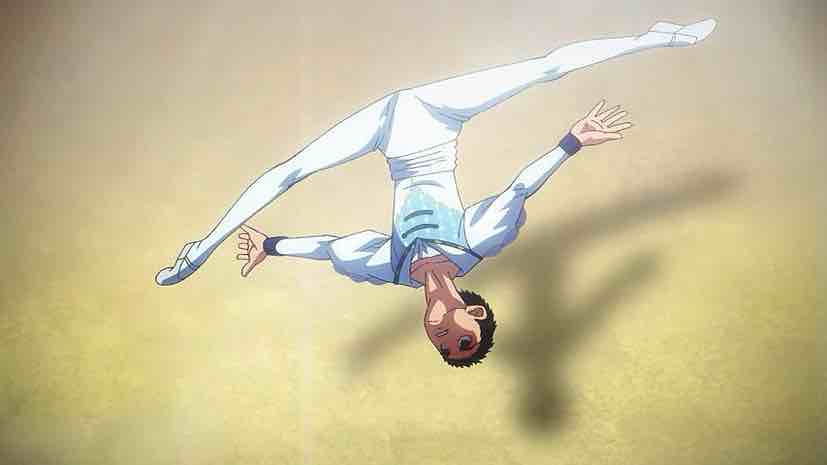 I think there are two main reasons for this, one “global” and one “local” if you like. In the first place, ballet is an art – and there are fundamental questions attached to art which transcend the particular medium in focus. That’s been the case with DDD but never so much as this week. That’s the global reason – the local one is that this specific series is so brilliant. The emotions are universal, the characters and situations are relatable, and the execution is superb. I may not know a Plié from a Piqué but I know beauty when I see it. And these movements, as depicted here, are beautiful.
I think there are two main reasons for this, one “global” and one “local” if you like. In the first place, ballet is an art – and there are fundamental questions attached to art which transcend the particular medium in focus. That’s been the case with DDD but never so much as this week. That’s the global reason – the local one is that this specific series is so brilliant. The emotions are universal, the characters and situations are relatable, and the execution is superb. I may not know a Plié from a Piqué but I know beauty when I see it. And these movements, as depicted here, are beautiful.
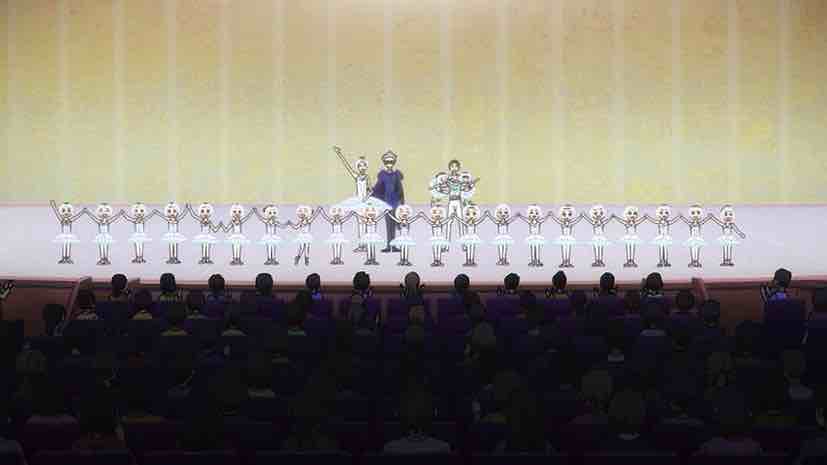 So the prickly judge lady at the ballet festival turns out to be Oikawa Ayako, scion of a famous ballet company (“top 5 in Japan”) in Tokyo. Not only that, but Chizuru-sensei is apparently an alumnus. Not surprisingly Oikawa punishes the Goudai Company for Junpei’s antics – not only depriving Luou of the MVP (much to the surprise of the audience) but taking the time to insult their performance in front of the entire auditorium (the encore sealed the deal). Junpei is no shrinking violet and has the gall to talk back, to which her rejoinder is to scold him that what he’s doing is “not ballet”. And the truth is she’s probably right – though it’s complicated.
So the prickly judge lady at the ballet festival turns out to be Oikawa Ayako, scion of a famous ballet company (“top 5 in Japan”) in Tokyo. Not only that, but Chizuru-sensei is apparently an alumnus. Not surprisingly Oikawa punishes the Goudai Company for Junpei’s antics – not only depriving Luou of the MVP (much to the surprise of the audience) but taking the time to insult their performance in front of the entire auditorium (the encore sealed the deal). Junpei is no shrinking violet and has the gall to talk back, to which her rejoinder is to scold him that what he’s doing is “not ballet”. And the truth is she’s probably right – though it’s complicated.
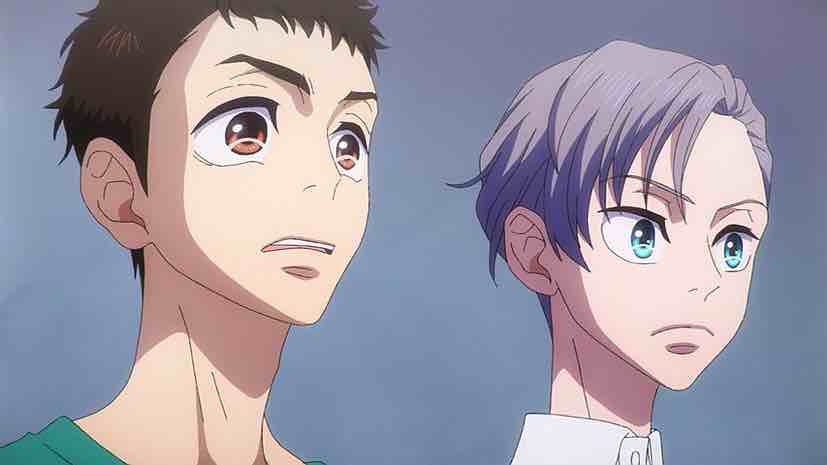 There are repercussions from this incident, naturally. Many of the parents pull their daughters out of the school, upset that the boys hogged the attention and even more, that Oikawa-sensei – a muckety-muck in the ballet universe – disapproves of the Goudai. Chizuru refuses to dump Junpei-kun outright, correctly accepting responsibility for having brought him into ballet in the first place. But “a deal is a deal”, and she also refuses to send Luou on his much-desired overseas competition venture – for which he quite naturally blames the wild monkey. Even so Chizuru-san points out an unassailable fact – Junpei’s improv brought out a depth in Luou’s dance that we never would have seen otherwise.
There are repercussions from this incident, naturally. Many of the parents pull their daughters out of the school, upset that the boys hogged the attention and even more, that Oikawa-sensei – a muckety-muck in the ballet universe – disapproves of the Goudai. Chizuru refuses to dump Junpei-kun outright, correctly accepting responsibility for having brought him into ballet in the first place. But “a deal is a deal”, and she also refuses to send Luou on his much-desired overseas competition venture – for which he quite naturally blames the wild monkey. Even so Chizuru-san points out an unassailable fact – Junpei’s improv brought out a depth in Luou’s dance that we never would have seen otherwise.
 Despite what some calendar-named series and stories about forests and instruments might say, the questions raised here are not a simple matter to deconstruct. Oikawa comes off as the villain of the piece but she’s not without justification – only tact and class. Junpei has to consider the nature of his art – if he’s not interested in the essential nature of ballet, he shouldn’t dance ballet. There are other options open to him in dance, no less valid as art than ballet is. One should aspire to different ideals as a classical pianist than as a jazz one, and there’s nothing wrong with that. One isn’t better than the other – they’re just different.
Despite what some calendar-named series and stories about forests and instruments might say, the questions raised here are not a simple matter to deconstruct. Oikawa comes off as the villain of the piece but she’s not without justification – only tact and class. Junpei has to consider the nature of his art – if he’s not interested in the essential nature of ballet, he shouldn’t dance ballet. There are other options open to him in dance, no less valid as art than ballet is. One should aspire to different ideals as a classical pianist than as a jazz one, and there’s nothing wrong with that. One isn’t better than the other – they’re just different.
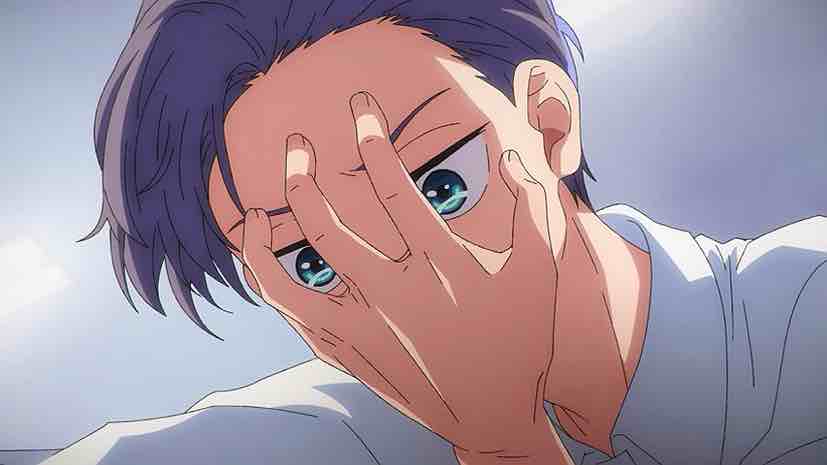 The problem is, Junpei’s first love is ballet (and Miyako). That love is genuine, and there should be a way for him to adapt to the confines of the medium without losing the essence of what makes him special. He’s nothing if not forceful and proactive – he takes on the responsibility of undoing the damage to the Goudai by promising to gain Oikawa-san’s approval. His tack is to join a weeklong ballet program for boys at the Oikawa, and he drags an extremely reluctant Luou with him. That’s an extremely tone-deaf move, but not out of character for a 14 year-old boy – and Junpei will show that he has the ability to recognize the flaws others see in him.
The problem is, Junpei’s first love is ballet (and Miyako). That love is genuine, and there should be a way for him to adapt to the confines of the medium without losing the essence of what makes him special. He’s nothing if not forceful and proactive – he takes on the responsibility of undoing the damage to the Goudai by promising to gain Oikawa-san’s approval. His tack is to join a weeklong ballet program for boys at the Oikawa, and he drags an extremely reluctant Luou with him. That’s an extremely tone-deaf move, but not out of character for a 14 year-old boy – and Junpei will show that he has the ability to recognize the flaws others see in him.
 Why does Oikawa-sensei order the two boys to be accepted into the class – and not only that, to be given choice spots in front of the mirror (man, ballet is cutthroat)? Perhaps she wants the opportunity to embarrass them for failing – or perhaps she sees the enormous potential they both have, and covets it for herself. The task of molding the clay falls to Nakamura-sensei, one of her instructors – and he has his hands full. Luou is silent and reserved, understandably experiencing serious PTSD at being surrounded by so many guys his own age. And Junpei is incredibly raw – to be with this group of students after dancing for three months is almost beyond comprehension.
Why does Oikawa-sensei order the two boys to be accepted into the class – and not only that, to be given choice spots in front of the mirror (man, ballet is cutthroat)? Perhaps she wants the opportunity to embarrass them for failing – or perhaps she sees the enormous potential they both have, and covets it for herself. The task of molding the clay falls to Nakamura-sensei, one of her instructors – and he has his hands full. Luou is silent and reserved, understandably experiencing serious PTSD at being surrounded by so many guys his own age. And Junpei is incredibly raw – to be with this group of students after dancing for three months is almost beyond comprehension.
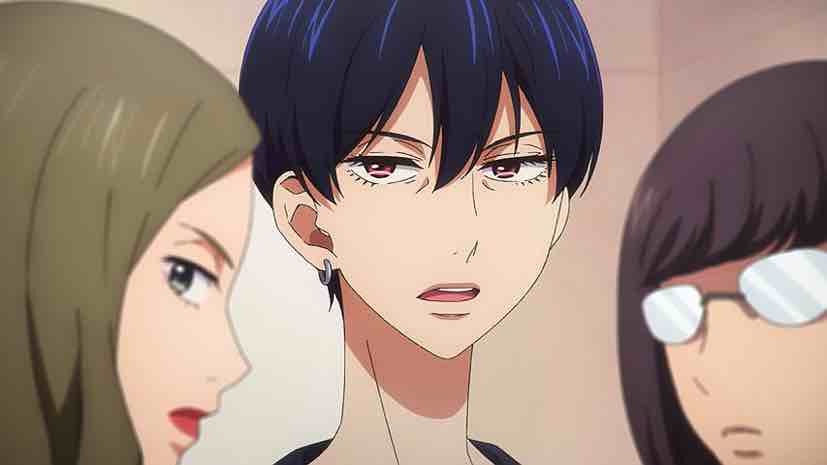 My lack of ballet knowledge doesn’t do me any favors here, but I think the gist of what’s happening is pretty clear. For Junpei ballet is fundamentally an expression of the emotions he feels when hearing the music – that’s why the acting part comes so naturally to him. For the others it’s about mastering the intricacies of form, aspiring to perfection. It’s like Junpei is a U.S. appliance trying to plug into an E.U. outlet – the voltages simply don’t match up. But he bears up under Nakamura-sensei’s criticism and keeps plowing forward, even taking the time to stoke Luou’s competitive fires (which he does quite expertly).
My lack of ballet knowledge doesn’t do me any favors here, but I think the gist of what’s happening is pretty clear. For Junpei ballet is fundamentally an expression of the emotions he feels when hearing the music – that’s why the acting part comes so naturally to him. For the others it’s about mastering the intricacies of form, aspiring to perfection. It’s like Junpei is a U.S. appliance trying to plug into an E.U. outlet – the voltages simply don’t match up. But he bears up under Nakamura-sensei’s criticism and keeps plowing forward, even taking the time to stoke Luou’s competitive fires (which he does quite expertly).
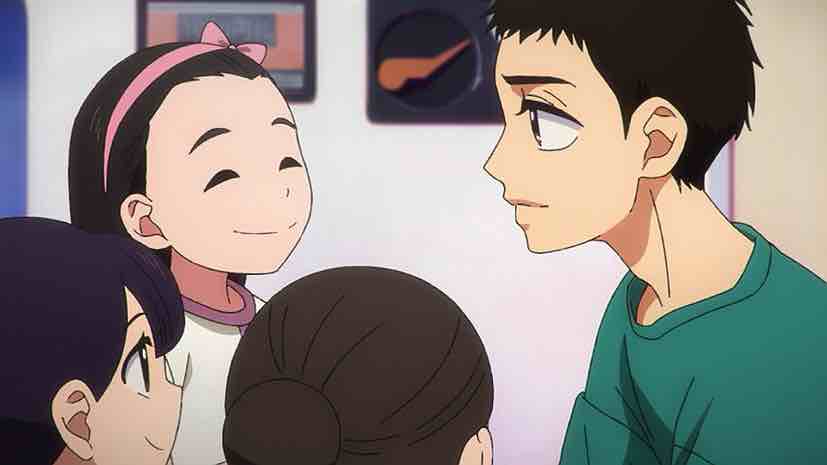 The old lady playing the piano (itself a joy for Junpei) taking Junpei under her wing is really a wonderful sequence. He loves her playing and she loves that – and she can see the rare qualities he possesses. But in her kind and respectful way, she makes it crystal clear to Junpei just how much he lacks (comparing himself to the SS class is hard but illuminating). The question is whether Junpei can learn to “feel good” by doing what those boys in SS can do rather than simply by expressing himself – and indeed, whether he should strive to. Self-awareness is not an easy quality for 14 year-olds to acquire – some people never do. But Junpei learning to see himself as he truly is – and the impact he has on others – is at the very heart of what Dance Dance Danseur is.
The old lady playing the piano (itself a joy for Junpei) taking Junpei under her wing is really a wonderful sequence. He loves her playing and she loves that – and she can see the rare qualities he possesses. But in her kind and respectful way, she makes it crystal clear to Junpei just how much he lacks (comparing himself to the SS class is hard but illuminating). The question is whether Junpei can learn to “feel good” by doing what those boys in SS can do rather than simply by expressing himself – and indeed, whether he should strive to. Self-awareness is not an easy quality for 14 year-olds to acquire – some people never do. But Junpei learning to see himself as he truly is – and the impact he has on others – is at the very heart of what Dance Dance Danseur is.


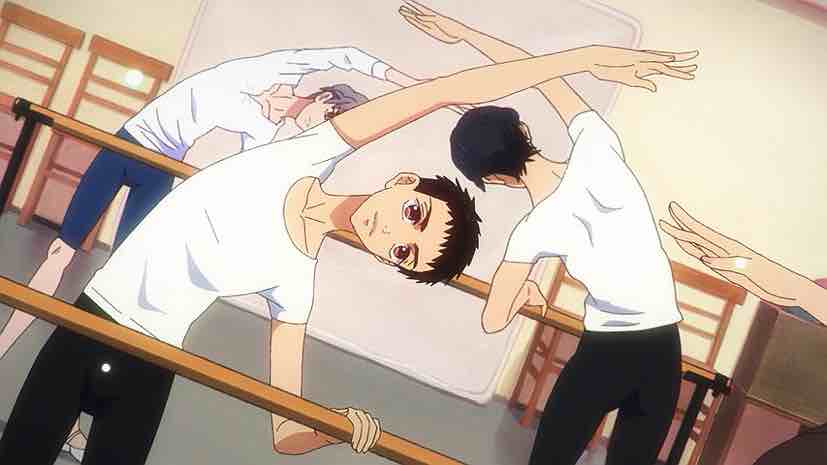
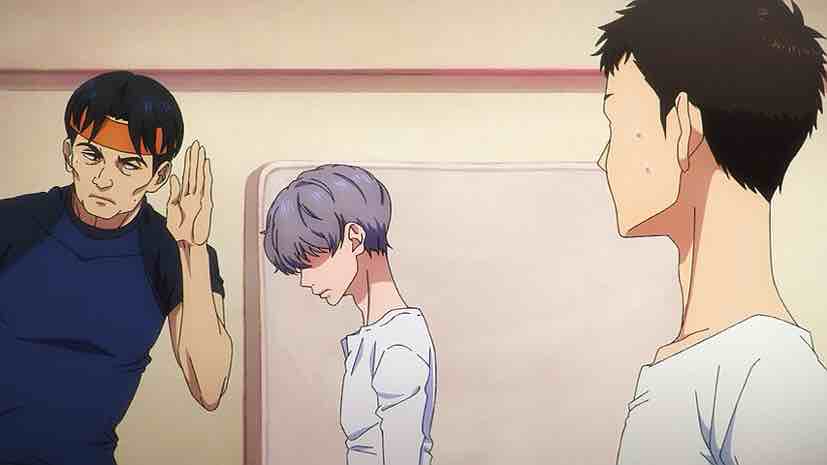
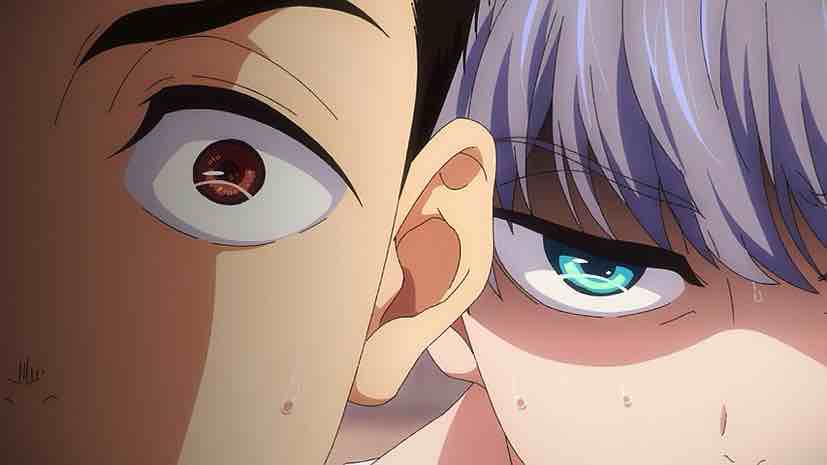
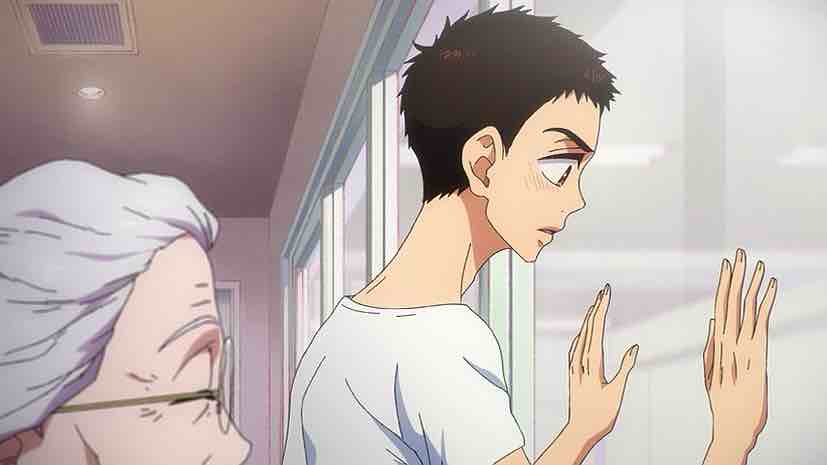
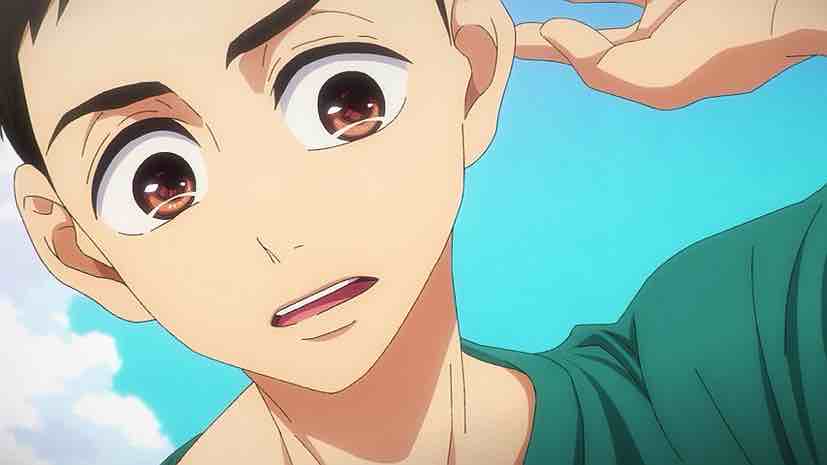
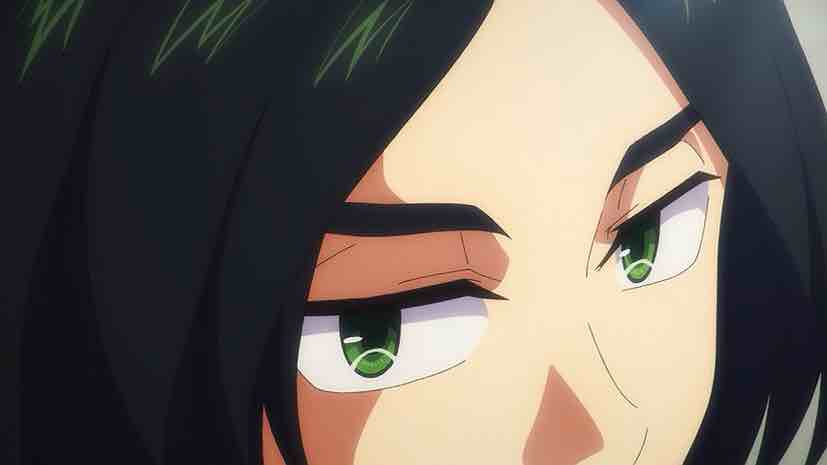
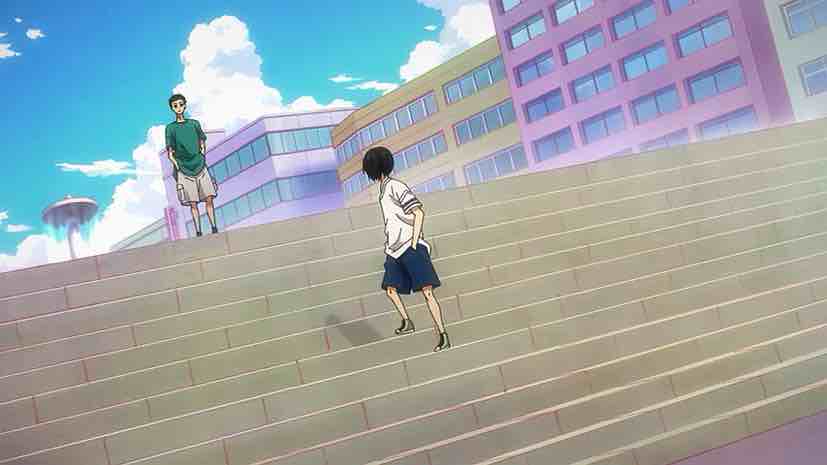
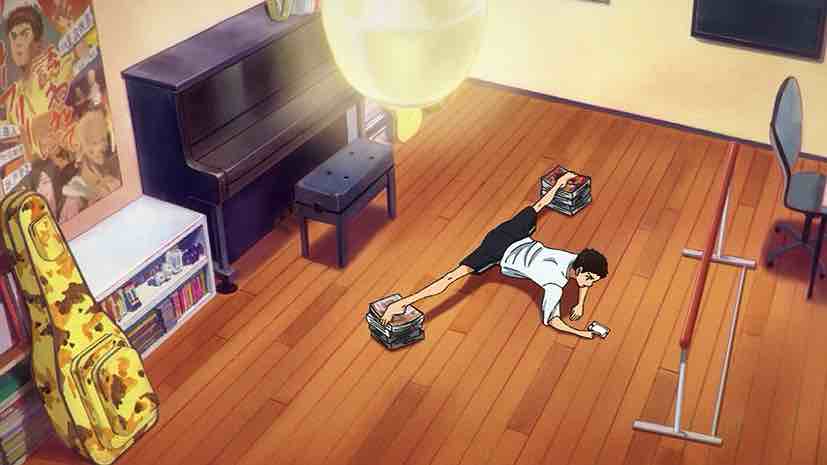
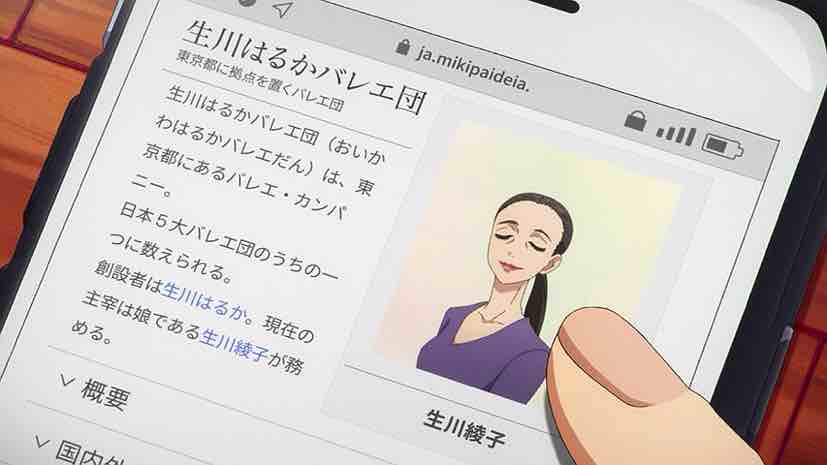
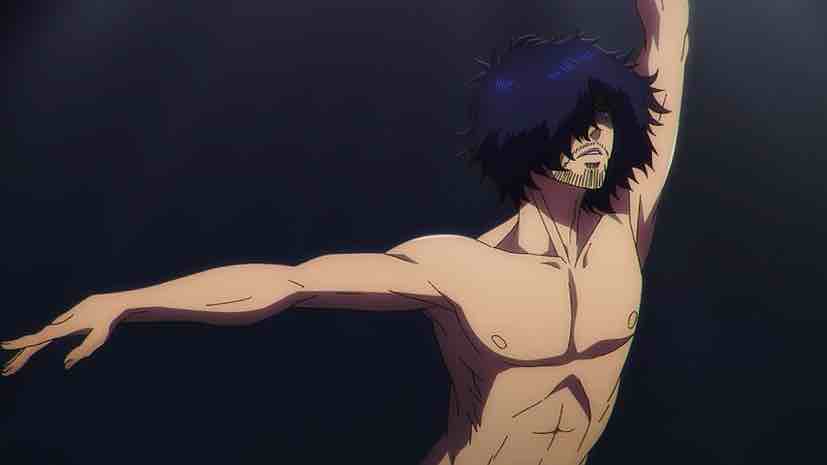
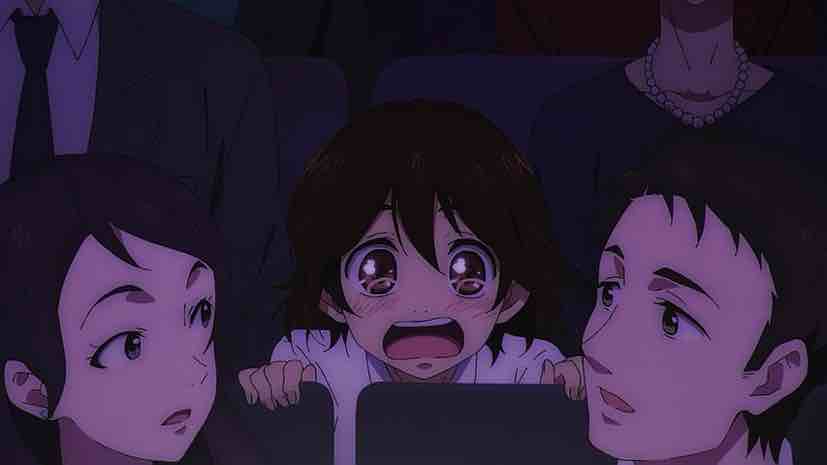
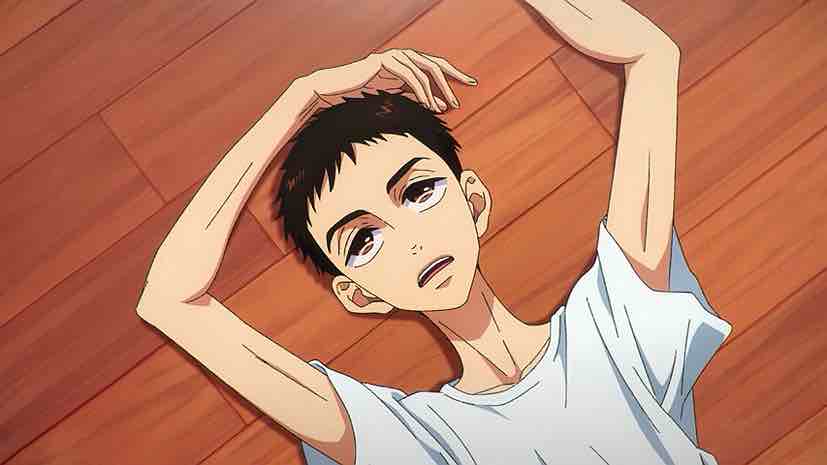
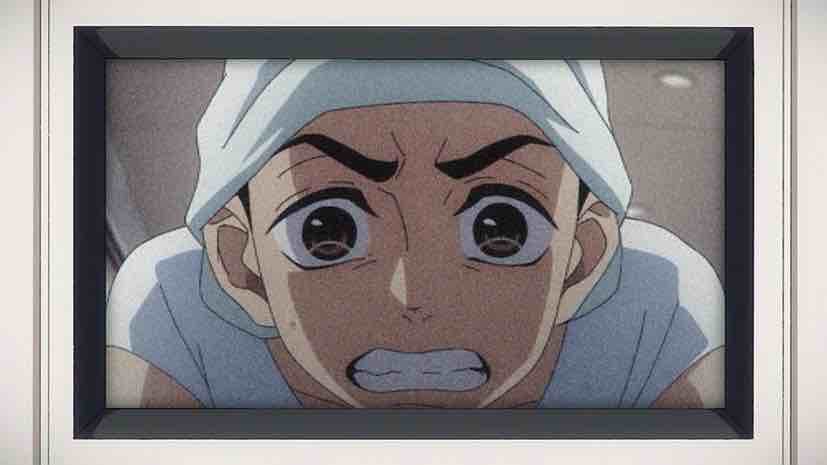
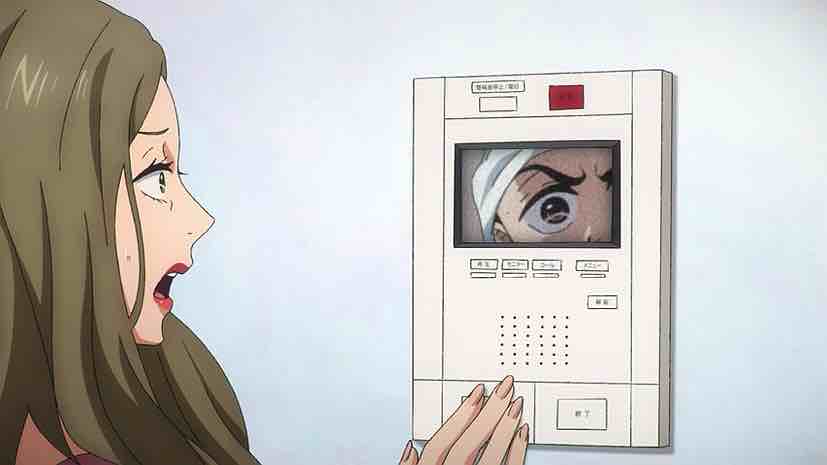
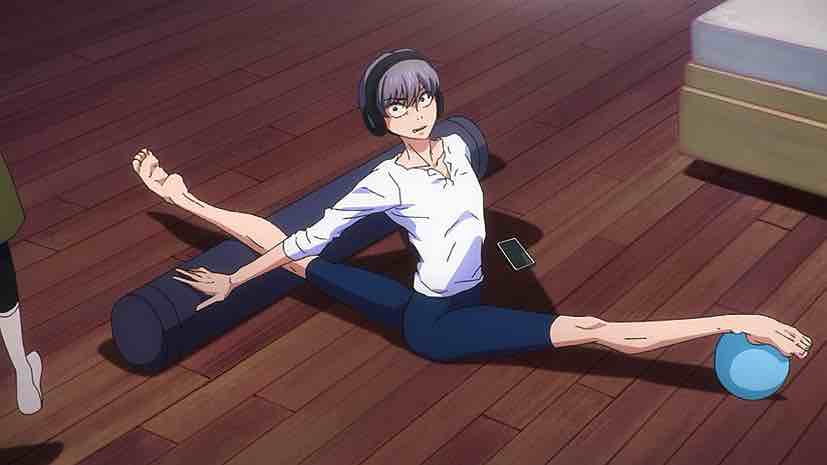


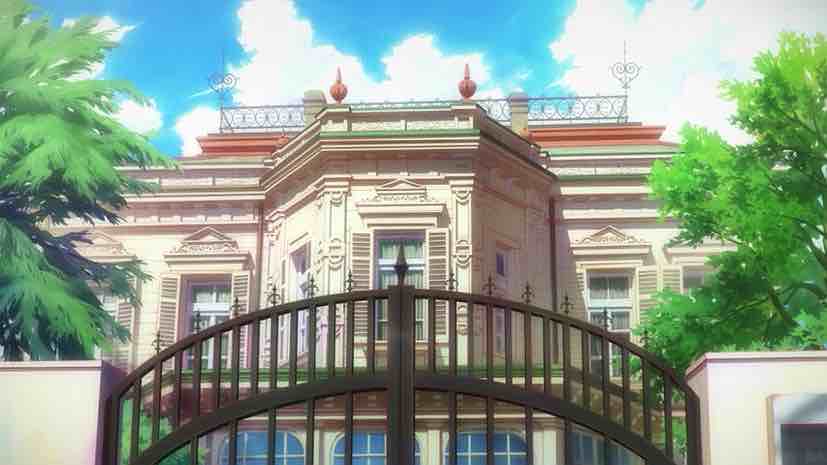


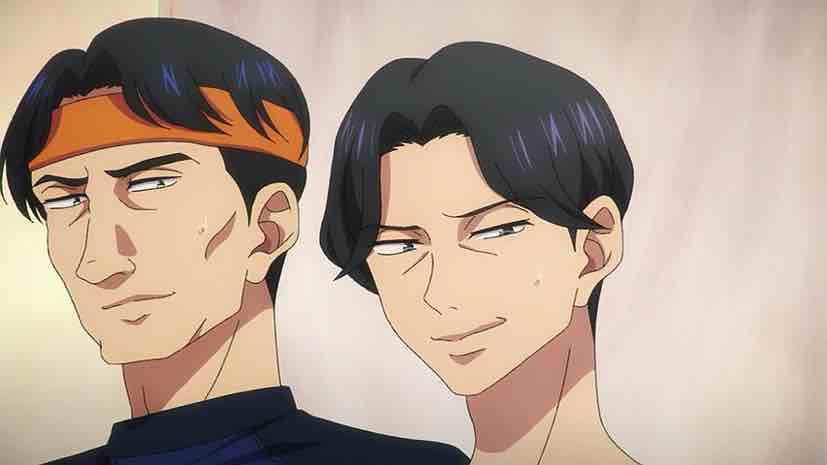
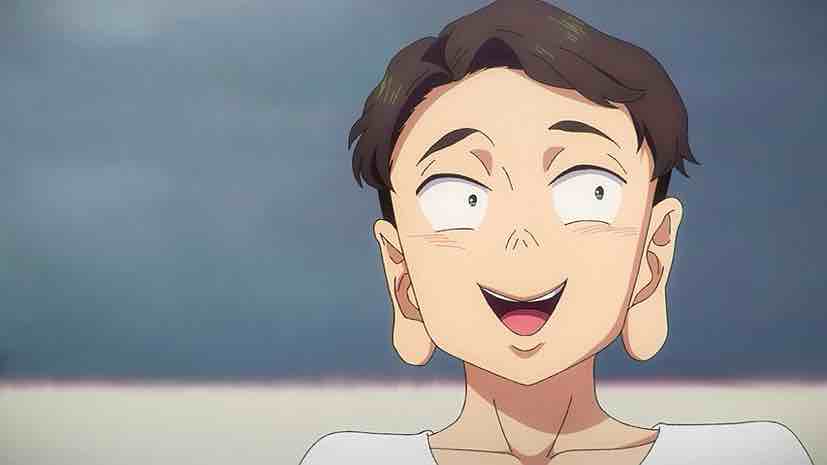


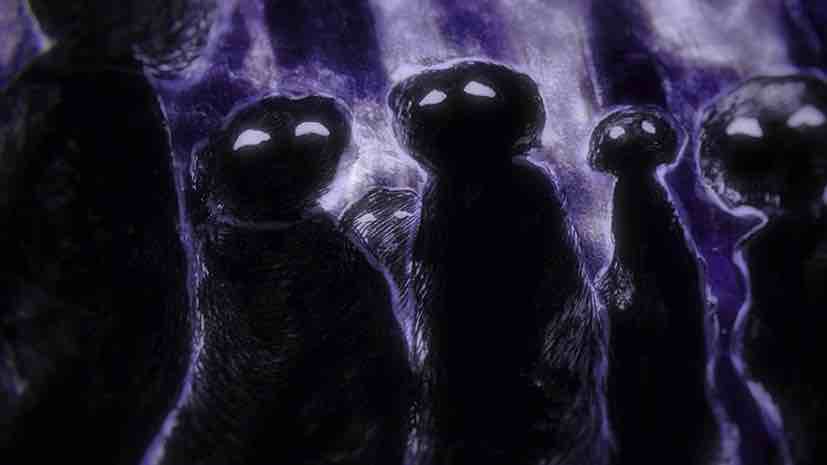
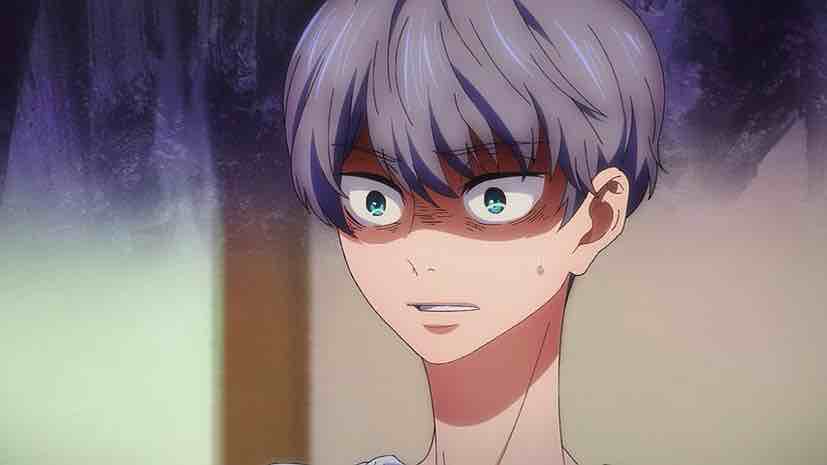
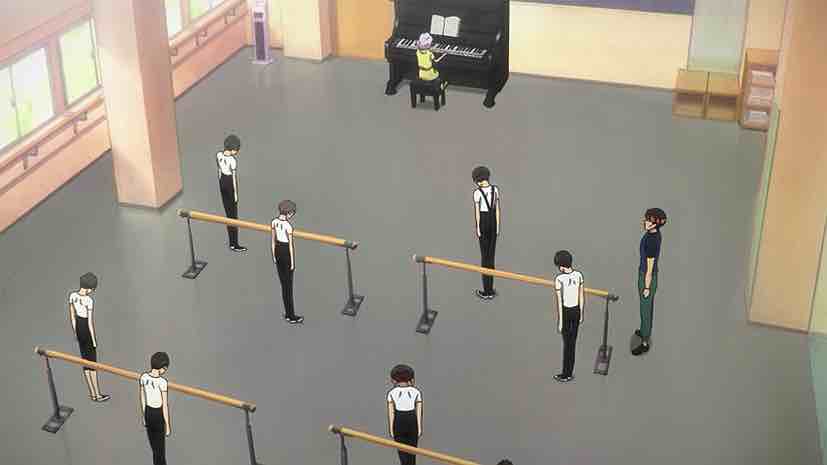


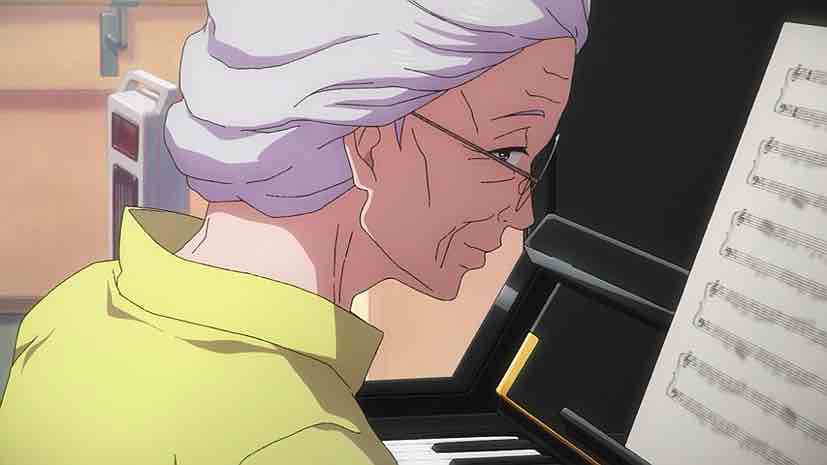

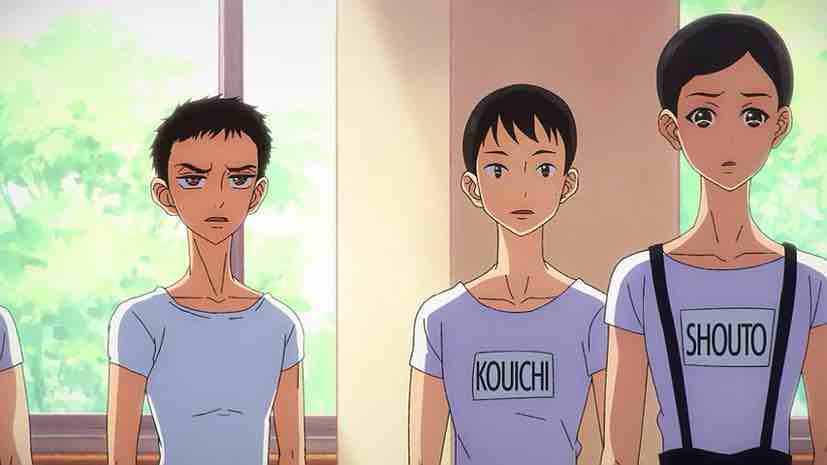


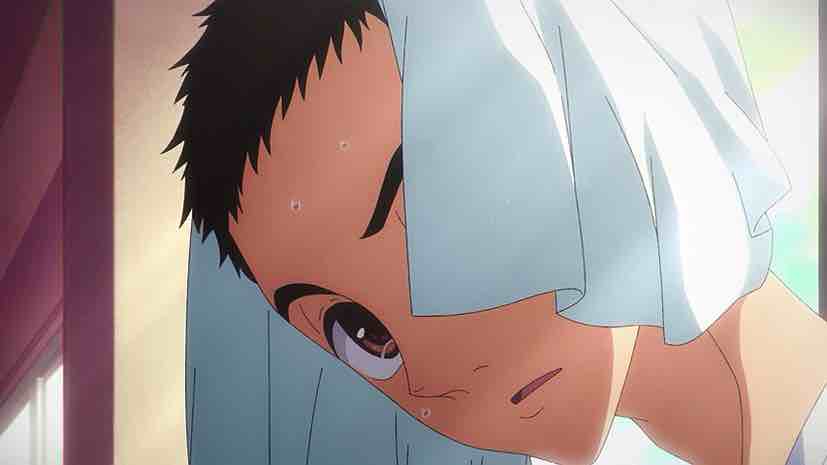
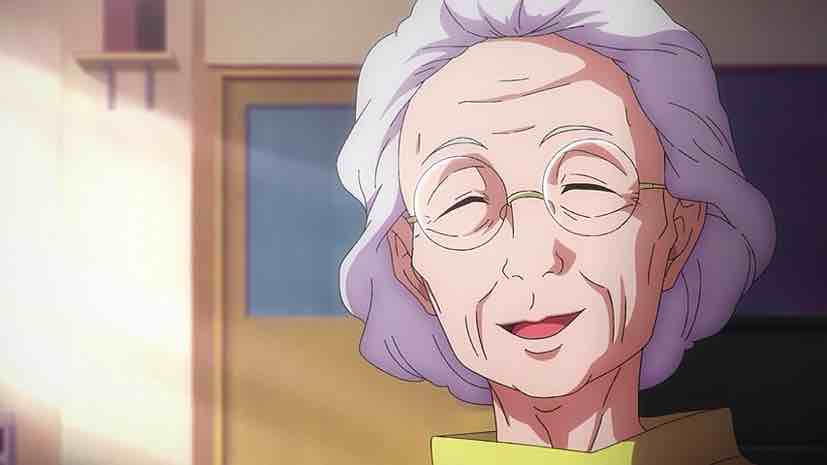

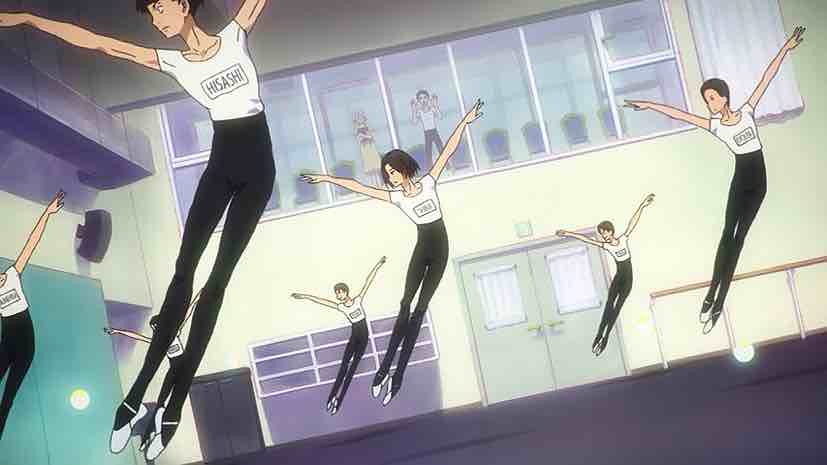
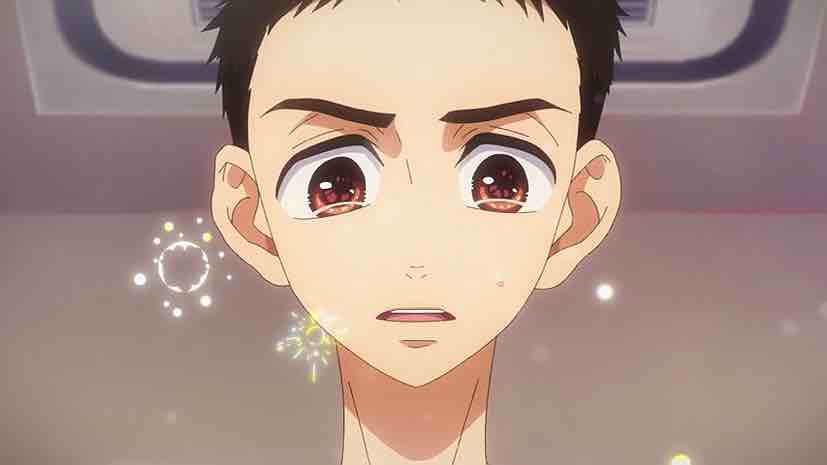
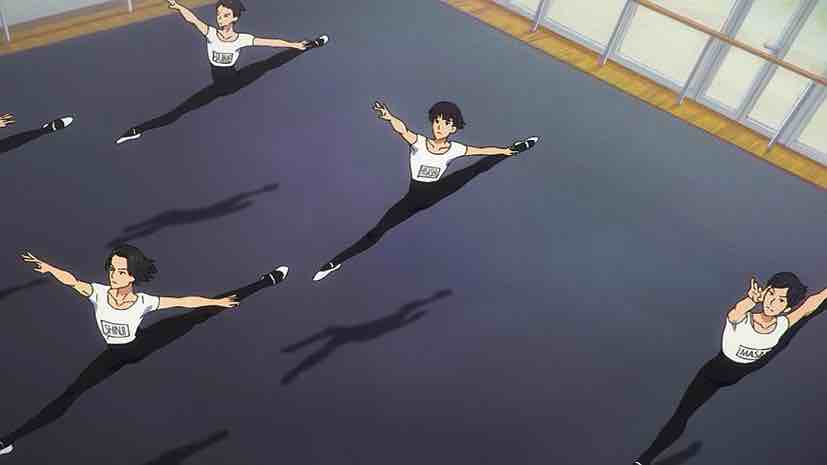
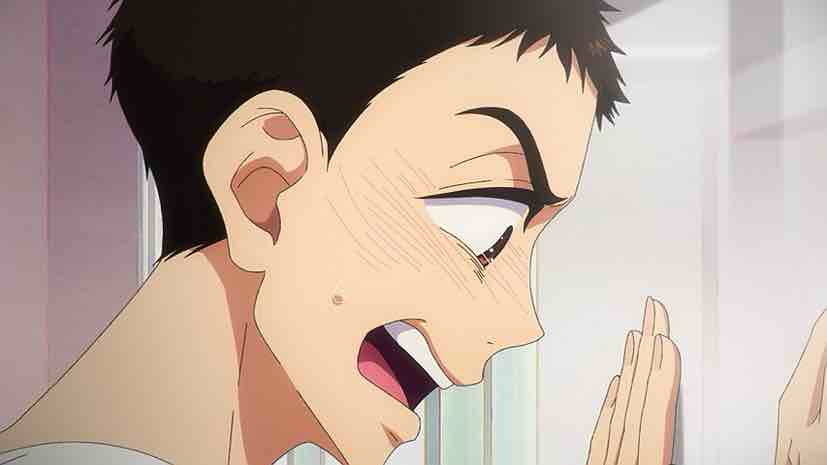

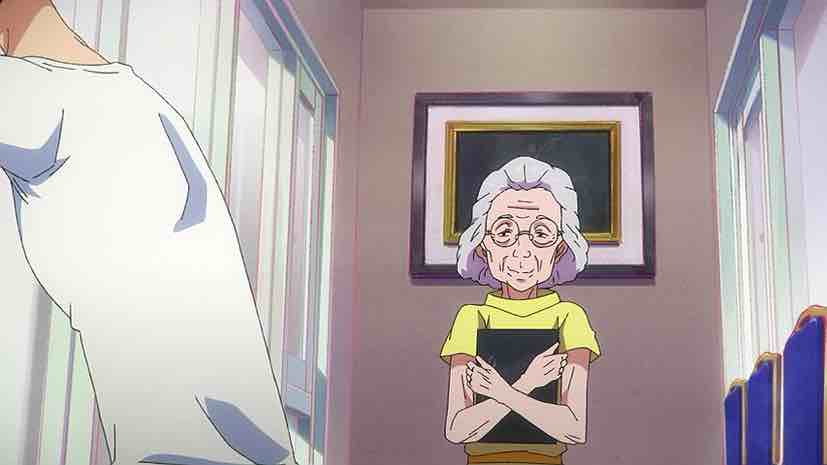
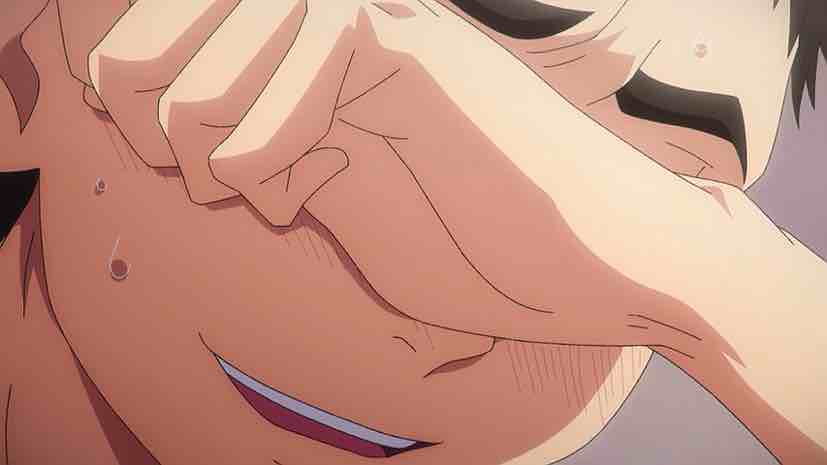
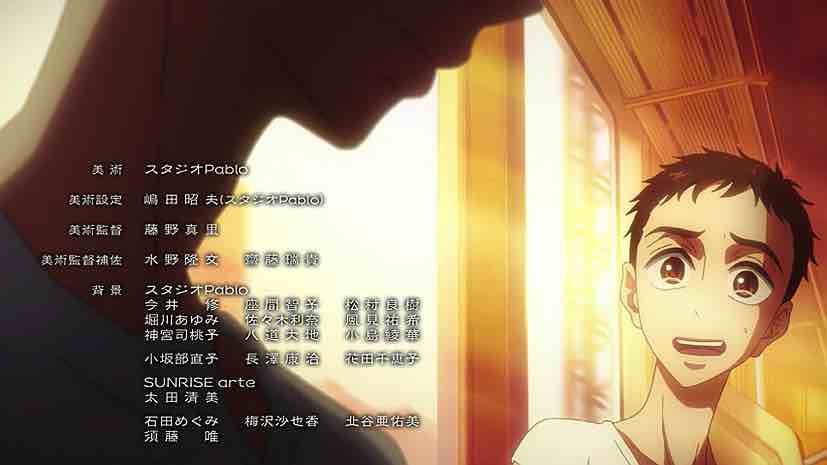
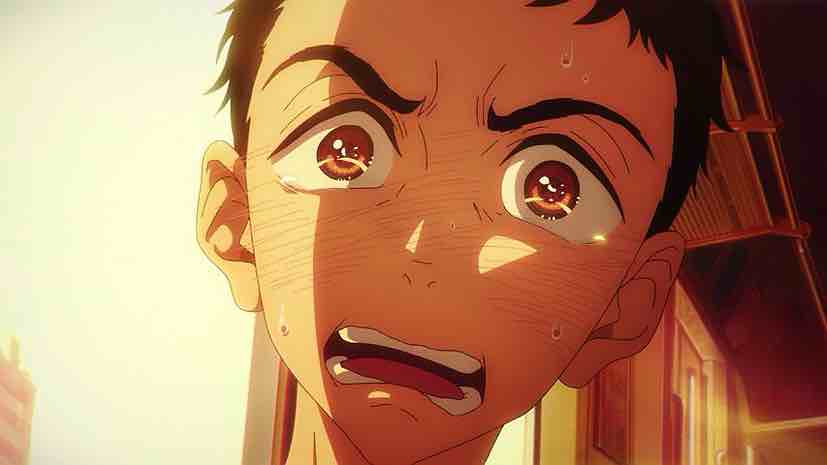
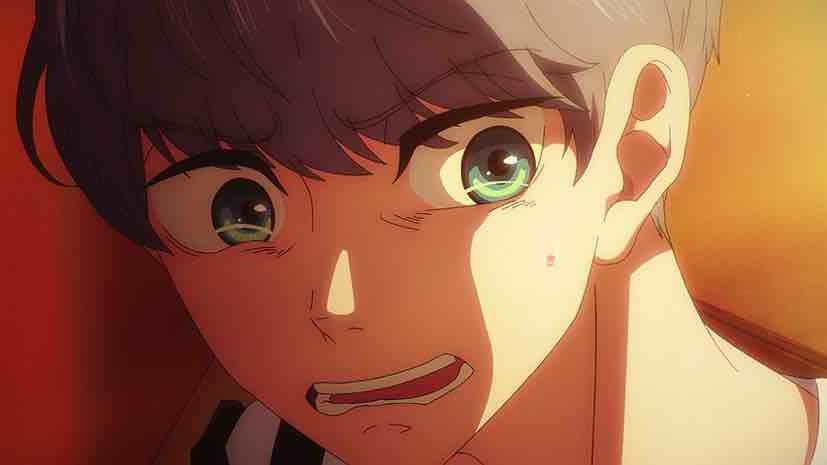
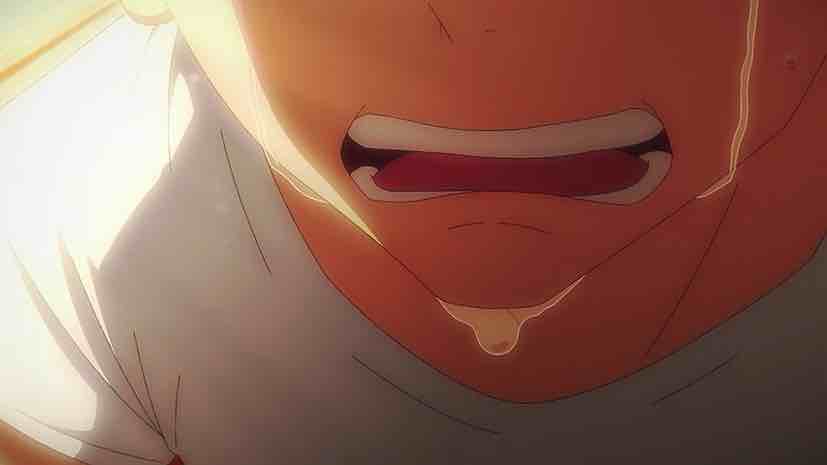


leongsh
May 14, 2022 at 9:36 pmThat look of Luou while stretching when Junpei bursts into his room without his consent (https://lostinanime.com/wp-content/uploads/2022/05/Dance-Dance-Danseur-06-20.jpg) – it’s priceless.
The coming 5 episodes will be just as eventful, if not more, as the past 6 episodes.
Nellie
May 14, 2022 at 9:54 pmThis is probably my favourite episode thus far. That sequence with Junpei and the old pianist is gold.
Temperamentally, Junpei- in all his enthusiasm and spontaneity- reminds me a lot of Haikyuu’s Hinata.
Guardian Enzo
May 14, 2022 at 10:18 pmIn a sense. I think Junpei is more introspective on the whole, though it’s a low bar. Shouyou is basically all volleyball – he has no other interests in his life. Junpei is a ballet nut but he’s got quite a diverse range of interests for a 14 year-old boy.
Spoon
May 16, 2022 at 12:53 amAs ac classical musician myself, I was extremely happy about the conversation with the pianist – and Junpei’s reaction to it. Without it, and if this show continued too much in the “My bull in a china shop way of doing things is the best, and forget what everyone says or what effects my actions have on other people” way that it seemed like it was becoming as of late, I probably would’ve dropped it this episode.
I like Oikawa. It could be nice to see someone actually stand up to Junpei for once. I’m pretty sure I know exactly what she’s up to (I’ve seen it too many times in college (usually a freshman percussionist or a pianist who had primarily played by themselves before, who now have to learn how to play a piece of music with a group of people – and they aren’t the soloist), but I wonder how it will play out here.
I’ve seen the look on Junpei’s face when watching the SS class on the face of said percussionist the first time he went to an orchestra rehearsal and really, really watched the bows/movement of the string players, and about it.took the time to think about it past the surface level.
I was starting to wane in my interest in the show during episode 5. Until the minute he burst through that door of the summer class. Now I’m more into it that I ever was before.
Guardian Enzo
May 16, 2022 at 7:04 amI’m no classical musician but I am considerably more knowledgeable about that than ballet (related as they can be). I’m struck by how much more nuanced the view here than it was in Shigatsu or Piano no Mori, which (especially the former) IMHO took extremely simplistic views on the artistic questions they explored (which somewhat overlap with the ones DDD is interested in).
Yukie
May 19, 2022 at 3:06 pmI’ve always felt that Shigatsu’s primary focus was the drama rather than the music(which just felt like the setting), and when I didn’t like any of the characters, I lost interest quickly. Interestingly, I found Junpei annoying in the first 3 episodes, but his struggles were realistic and interesting enough to keep me coming back every week. Definitely he’s grown into a protagonist that you want to root for, and I am glad to see he’s learning to reflect on his actions now. I really have to applaud the character writing. There’s a human quality to all these characters, yes even Luou. Luou’s PTSD moment this ep. was especially relatable, taking me back to the days when I struggled with social anxiety…introducing yourself to a new class was always the worst xD
Guardian Enzo
May 19, 2022 at 8:57 pmRe: Sh*gatsu, I feel the same – but its approach to music bothered me too.
I’ve seen a lot of criticism of Junpei but you know, 14 year-old boys are pretty annoying little bastards generally speaking, so what’s annoying about him is quite realistic in my view. I think he’s one of the more believable anime takes on a middle schooler (an age group anime almost always gets wrong) in a long time.